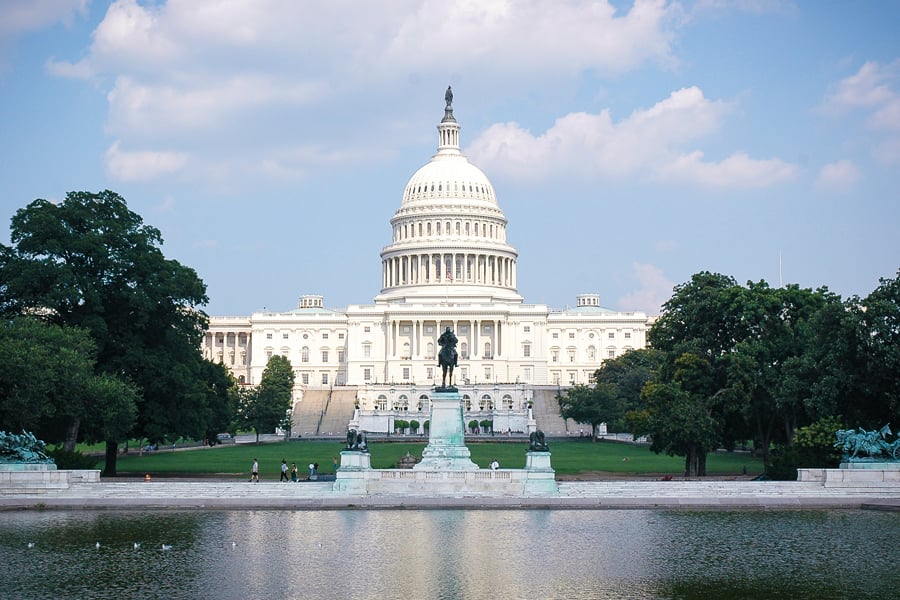Brokerage and insurance groups have dominated industry political spending in the first six months of the 2020 election cycle, but all the donors are seeking to make friends on both sides of the aisle.
The Investment Company Institute ($695,750), the American Council of Life Insurers ($355,500), the National Association of Insurance and Financial Advisors ($291,000), the Securities Industry and Financial Markets Association ($170,500), and the Insured Retirement Institute ($110,000) have all hit six figures in their contributions to congressional campaigns through June, according to their
filings with the Federal Election Commission.
The Financial Services Institute, whose members are independent broker-dealers and financial advisers, has spent $34,000 so far in the cycle.
Organizations that primarily represent investment advisers are spending far less on political campaigns. The Investment Adviser Association has made $5,000 in contributions this year, while the Financial Planning Association has made a $1,500 contribution.
The 2020 federal election cycle began in January and will continue through Dec. 31, 2020. The early indications are that it will be
similar to the 2018 cycle in terms of trade association spending.
Although Washington is frequently riven by partisan strife, lobbying groups in the financial advice sector make sure their donations are bipartisan.
[Recommended video: What makes ETFs a great structure for innovation?]
For instance, the IAA's political action committee has made contributions to House Financial Services Chairwoman Maxine Waters, D-Calif., as well as Rep. Bill Huizenga, R-Mich. and ranking member of the panel's investor protection, entrepreneurship and capital markets subcommittee.
"IAA PAC is not ideological," said Neil Simon, IAA vice president for government relations. "We contribute to members on both sides of the aisle who work on legislative issues of importance to advisers."
FSI has contributed to
Rep. Ann Wagner, R-Mo., a harsh critic of the now-defunct Labor Department fiduciary rule and strong supporter of the Securities and Exchange Commission's recently approved Regulation Best Interest.
The group also has made a donation to Sen. Sherrod Brown, D-Ohio and ranking member of the Senate Banking Committee, who has criticized Reg BI as not being strong enough to protect investors.
Making political donations — no matter how modest — is a way of building relationships that can help a group spread its message to lawmakers and their aides.
Dave Yeske, managing director of Yeske Buie, said he regularly gives to the FPA political action committee because advisers are engaged in a "David and Goliath" battle with the brokerage industry on Capitol Hill.
"Whatever we can do to get our foot in the door and tell our story of real client-centered, fiduciary-based comprehensive financial planning to legislators is critical," Mr. Yeske said.







